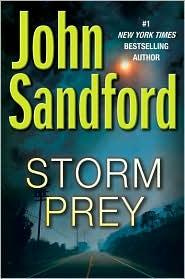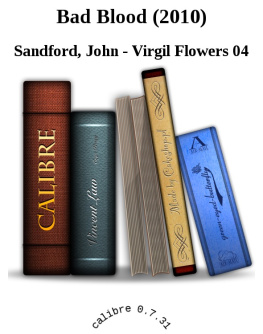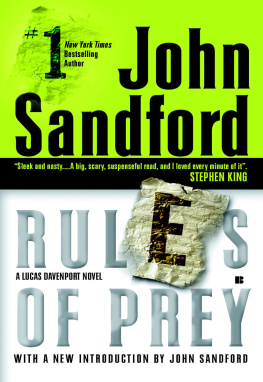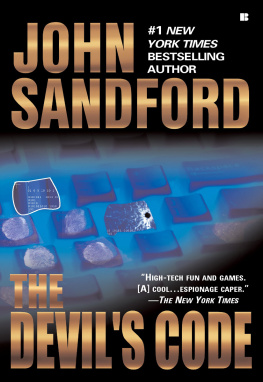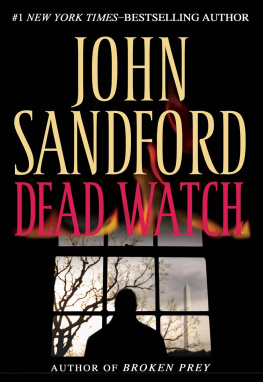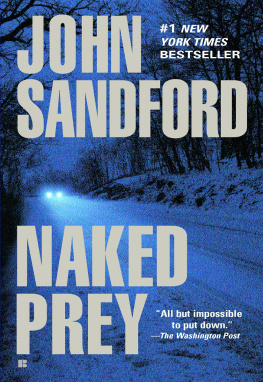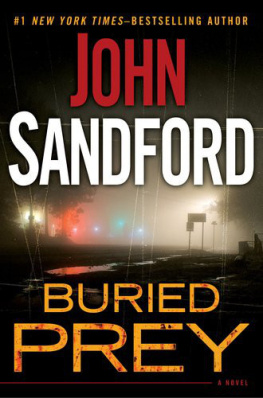John Sandford - Dark of the Moon
Here you can read online John Sandford - Dark of the Moon full text of the book (entire story) in english for free. Download pdf and epub, get meaning, cover and reviews about this ebook. year: 2007, publisher: Putnam Adult, genre: Detective and thriller. Description of the work, (preface) as well as reviews are available. Best literature library LitArk.com created for fans of good reading and offers a wide selection of genres:
Romance novel
Science fiction
Adventure
Detective
Science
History
Home and family
Prose
Art
Politics
Computer
Non-fiction
Religion
Business
Children
Humor
Choose a favorite category and find really read worthwhile books. Enjoy immersion in the world of imagination, feel the emotions of the characters or learn something new for yourself, make an fascinating discovery.
- Book:Dark of the Moon
- Author:
- Publisher:Putnam Adult
- Genre:
- Year:2007
- Rating:5 / 5
- Favourites:Add to favourites
- Your mark:
- 100
- 1
- 2
- 3
- 4
- 5
Dark of the Moon: summary, description and annotation
We offer to read an annotation, description, summary or preface (depends on what the author of the book "Dark of the Moon" wrote himself). If you haven't found the necessary information about the book — write in the comments, we will try to find it.
Dark of the Moon — read online for free the complete book (whole text) full work
Below is the text of the book, divided by pages. System saving the place of the last page read, allows you to conveniently read the book "Dark of the Moon" online for free, without having to search again every time where you left off. Put a bookmark, and you can go to the page where you finished reading at any time.
Font size:
Interval:
Bookmark:
Dark Of The Moon
Virgil Flowers 01
John Sandford
Chapter
Six garbage bags full of red cedar shavings, purchased two at a time for a dollar a bag, at midnight, at the self-serve shed at Dunstead & Daughter Custom Furniture, serving your fine cabinetry needs since 1986. No cameras, no lights, no attendant, no theft, no problem.
Moonie stacked the bags in the basement, Cross Canadian Ragweed pounding through the iPod ear-buds, singing about those dead-red lips; then up the stairs, pulling the ear-buds, to where the old man lay facedown on the rug, shaking, kicking, crying, trying to get free. Tied with cheap hemp rope, but no matter. The old man was so old and so feeble that string would have worked as well as rope.
"Please," he groaned, "don't hurt me."
Moonie laughed, a long singing rock 'n' roll laugh, and at the end of it, said, "I'm not going to hurt you. I'm going to kill you."
"What do you want? I can tell you where the money is."
"The money's not what I want. I've got what I want." Moonie gripped the rope between the old man's ankles and dragged him to the basement stairs, and then down the stairs, the old man's face banging down each tread as they went.
"Oh my Jesus, help me," the old man wept through his bloody lips, his fractured face. "Help me, Jesus."
Thump! Thump! Thump! Nine times.
"Jesus isn't going to help," Moonie said.
The old man pulled it together for a second. "He can send you to hell," he snarled.
"Where do you think I am, old man?"
"You ..."
"Shut up. I'm working."
* * *
Getting the old man onto the bags was the hardest part. Moonie first threw him face down on the top most bag, then heaved his feet up. The old man was tall, but frail; eighty-two years old and sedentary and semi-senile, though not so senile that he didn't know what was happening now. He sank down into the bags of wood shavings and thrashed there, got halfway off, then sank down between them, thrashed some more, then quit. Wood shavings made for the most intense fire, and left no obvious residue; or so the arson fans theorized on the Internet.
Moonie got busy with the first five-gallon can of gasoline, pouring it around the basement, around the bags, soaking the old man with it, the unused wooden canning racks, the seldom used workbench, the stack of aging wooden lawn chairs, and then up the stairs. The old man began thrashing again. Moaning, "Please ..."
The first few splashes of gasoline smelled good, like the shot you got when you were pumping gas into your car; but down in the enclosed space, five gallons of gas, the fumes got stiff in a hurry.
"Don't die on me. Wait for the fire," Moonie called, backing up the stairs, splashing gas along the steps. The second can was poured more judiciously around the first floor, soaking into the Persian carpets, leaking around the legs of the Steinway grand piano, flowing into the closets. When two-thirds of it was gone, Moonie backed through the kitchen, where the first can, now empty, waited. Moonie would take them. No point in making the arson obvious, though the police would probably figure it out soon enough.
A driving rain beat against the kitchen windows. Ideally, Moonie would have preferred to trail the gas out into the yard, and to touch it off from a distance. With the rain, though, that would be difficult. The rain would wash the gas away as quickly as it was poured. So it would have to be kept inside. A small risk ... the fumes boiled unseen around the killer's ankles, flowing into every nook and cranny.
At the kitchen door, Moonie splashed out a final pool of gas; stopped and looked into the house. The place was huge, expensive, and a wreck. The old man's housekeeper came in twice a week, did some dishes, washed some clothes; but she didn't do carpentry, wiring, or plumbing, and the house needed all of it, along with a wide-spectrum exterminator. There were bugs in the basement and bats in the belfry, the killer thought, and then, giggling now, a nut in the kitchen.
The old man cried a last time, faintly audible against the sound of the rain and wind ...
"Please, God help me ..."
Good to know he was still alive - the old man would get the full experience.
Moonie stepped through the kitchen door onto the back porch, took out a book of matches, scratched one, used that one to set off the entire book. The book cover caught, and Moonie played with it, enjoying the liquid flow of the flame, getting it right, then threw the book toward the pool of gas in the kitchen, turned, and ran out into the rain.
The fire popped to the top of the pool of gasoline, flickered across it, snaked one way into the living room, under the shambles of the once grand piano, and the other way, like a living thing, down the stairs into the basement.
The fumes in the basement were not quite thick enough for a real explosion. The old man, surrounded by bags of wood shavings, heard a whump and felt the sudden searing heat of a blowtorch that burned away all feeling in an instant, and killed in the next.
That was all for him.
He'd been doing the hard stuff for three years, with a personal side-venture as an outdoor writer. He had credits at most of the magazines that still took freelance stuff, but he wasn't going to make a living at it; not unless he got a staff job, and magazines weren't looking real healthy.
Didn't know if he wanted to, anyway.
Davenport had told him that smart crooks were the most interesting game, and Virgil sometimes agreed.
* * *
Virgil wore native dress out on the prairie: faded jeans and scuffed cowboy boots and musical T-shirts, and because he was a cop, a sport coat. In the sun, in the summer, he wore a straw hat and sunglasses. He usually didn't wear a gun, unless he was in St. Paul, where Davenport might see him. The law required him to go armed, but in Virgil's opinion, handguns were just too goddamned heavy and uncomfortable, so he kept his under the seat of the car, or in his briefcase.
After hanging his rain suit in the shower, he got a laptop out of his briefcase, went online. In his personal e-mail, he found the note from Black Horizon, a Canadian outdoor magazine, that he'd been expecting for a couple of days. They were working late in Thunder Bay: "Virg, I had to take a couple graphs out of the section on the portage - nothing I could do about it, it's all about the space. I tried not to hack it up too bad. Anyway, it works for us if it works for you. Get back to us, and I'll stick a check in the mail."
He was pleased. This was his third piece in BH. He was becoming a regular. He opened the attached Word document, looked through the edited section.
Good enough. He closed the document and sent a note to the editor: "Thanks, Henry. It's fine. I'll look for the check. Virgil."
Whistling now, he went to the National Weather Service, typed in the zip code for Bluestem, got the week's forecast: thunderstorms tonight - no shit - with fair skies and warm weather the next three or four days, thunderstorms possible in the afternoons. He checked Google News to make sure London hadn't been nuked since he left Mankato; it hadn't.
He shut down the computer, got undressed, shook the little remaining water off his rain suit, got in the shower, cranked the heat until he couldn't stand it anymore, then turned it up one more notch. He got out, scalded half to death, crawled into bed, and thought about Bill Judd roasting like a bratwurst in the embers of his own home, and a truck speeding away in the night. That would be an interesting murder.
* * *
Then he thought about God for a while, as he did most nights.
The son of a Presbyterian minister and a professor of engineering, who saw in God the Great Engineer and believed as devoutly as her husband, Virgil had gotten down on his knees every night of his life, to pray before bed, until the first night he'd spent in the dorm at the University of Minnesota. That night, embarrassed, he hadn't gotten down on his knees, and he'd shivered and shaken in fear that the world would end because he hadn't said his prayers.
Next pageFont size:
Interval:
Bookmark:
Similar books «Dark of the Moon»
Look at similar books to Dark of the Moon. We have selected literature similar in name and meaning in the hope of providing readers with more options to find new, interesting, not yet read works.
Discussion, reviews of the book Dark of the Moon and just readers' own opinions. Leave your comments, write what you think about the work, its meaning or the main characters. Specify what exactly you liked and what you didn't like, and why you think so.

